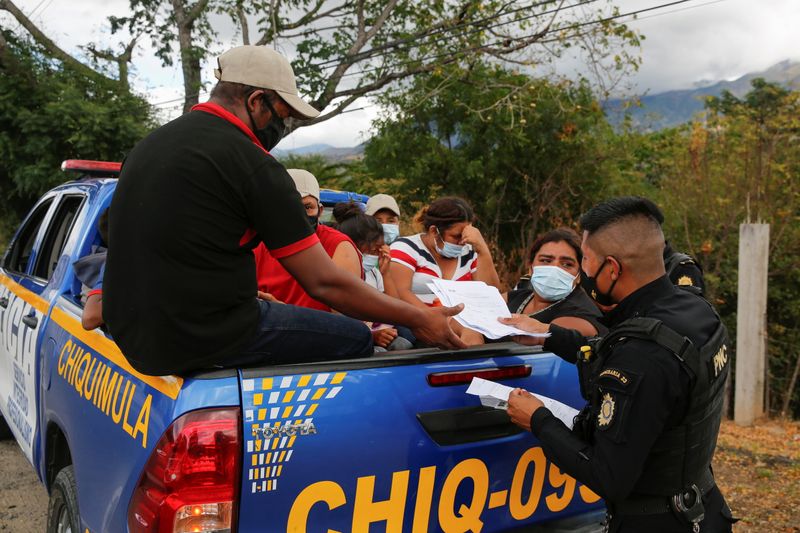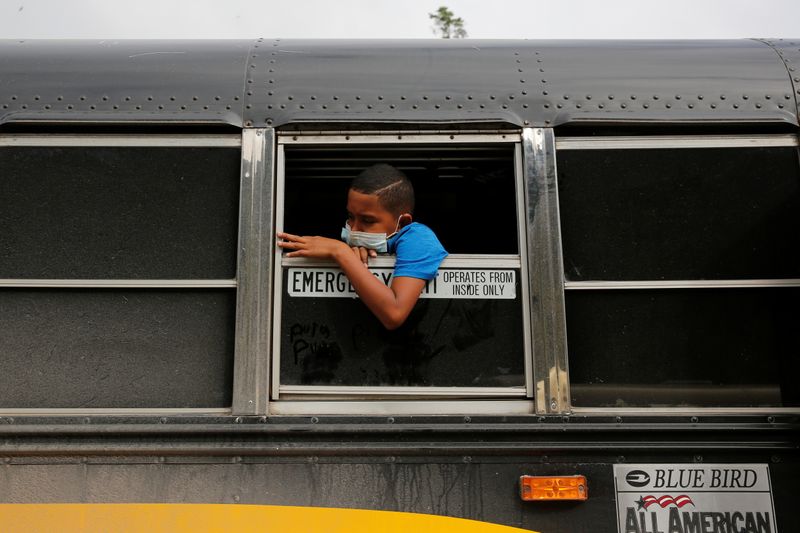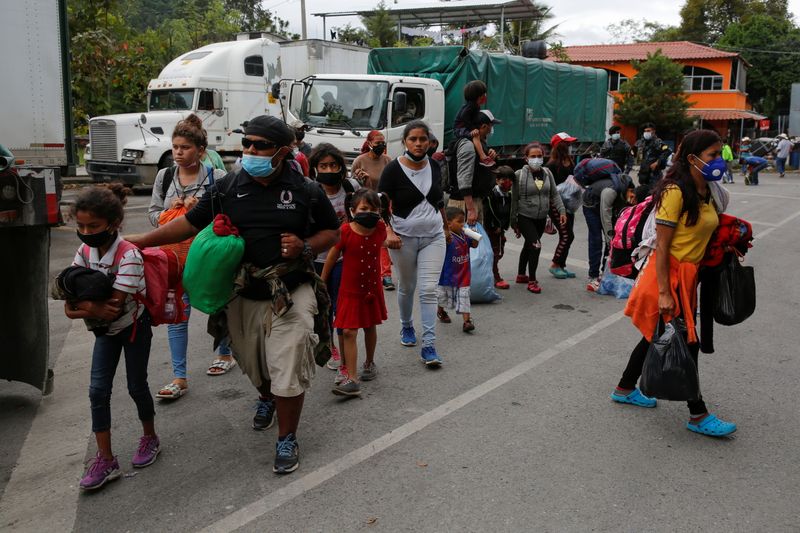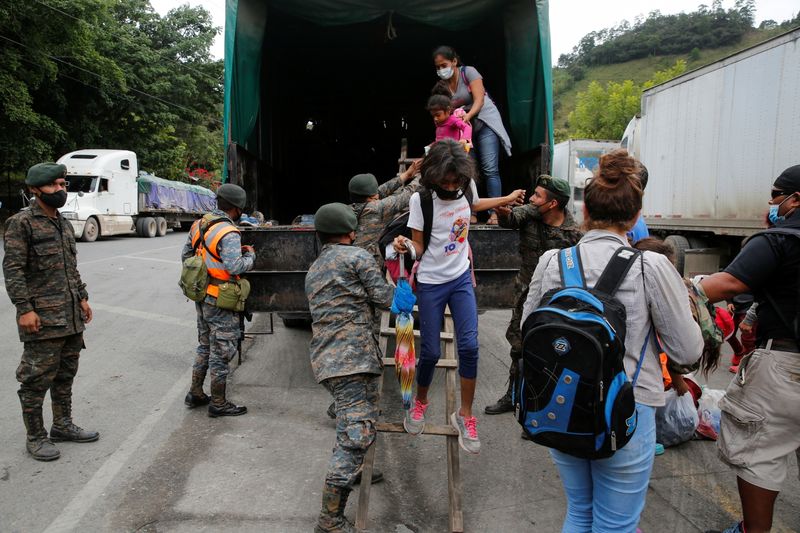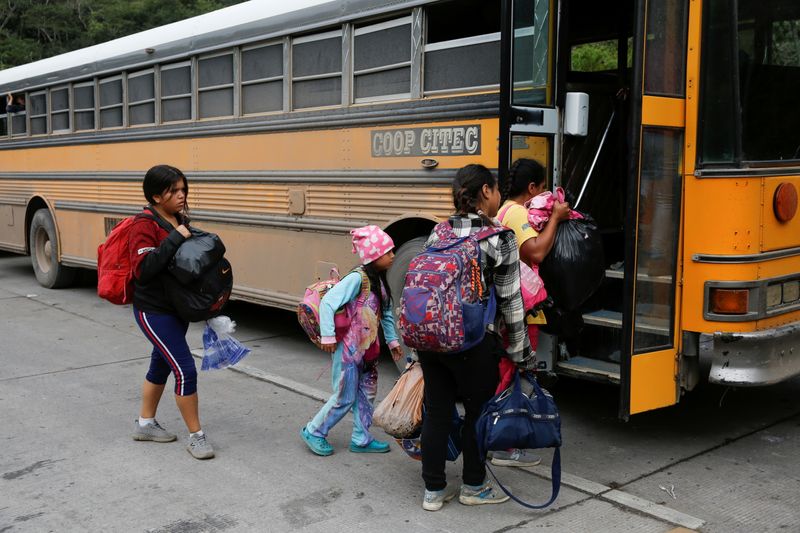EL FLORIDO, Guatemala (Reuters) – Guatemala on Tuesday pressed on with transporting migrants back to the border with Honduras, further thinning out a U.S.-bound caravan that was halted by security forces at the weekend.
Nearly 8,000 people entered Guatemala from Honduras last week, local authorities said. A Reuters witness estimated around a quarter of them, many with children, ended up stuck in the village of Vado Hondo when Guatemalan forces barred passage.
Security forces wielding batons cleared them from an impromptu camp on Monday, and buses provided by the government ferried them back to the El Florido border crossing with Honduras.
Returns of migrants by bus were ongoing on Tuesday, the government said, adding that the trips were voluntary.
Migrants also face major challenges if they make it to Mexico. Those who reach the Mexican border must present recent negative COVID-19 tests to legally enter, Maximiliano Reyes, a Mexican deputy foreign minister said on Tuesday.
Reyes told news network Milenio that 4,500-5,000 of the migrants had been sent back from Guatemala, with others still weighing their options. He estimated around 1,000 migrants had fanned out inside Guatemala.
Some migrants said they were injured as security officials forced them from the road in Vado Hondo.
“It’s not fair that they treat us like dogs, like animals,” said Andy Osorio from Honduras.
Guatemala’s human rights ombudsman, Jordan Rodas, called on the military and police to avoid the use of force. The Guatemalan army said some migrants had thrown stones at soldiers, who used “minimal and proportionate force.”
Some in the caravan fled into the mountains during the road clearance, saying they did not want to board the buses.
“We’re running,” said Rosa Alvarez, a Honduran mother traveling with children, who said they had been affected by teargas used by Guatemalan authorities. “We have no money or food.”
(Reporting by Luis Echeverria in El Florido, Sofia Menchu in Guatemala City, Laura Gottesdiener in Tapachula, Mexico, Frank Jack Daniel in Mexico City and Gustavo Palencia in Tegucigalpa; Writing by Cassandra Garrison; Editing by Howard Goller and Rosalba O’Brien)

